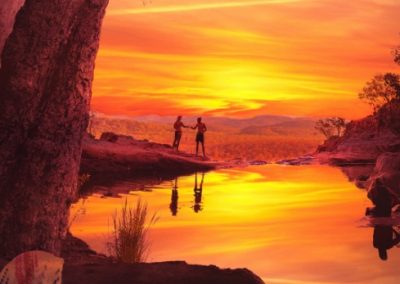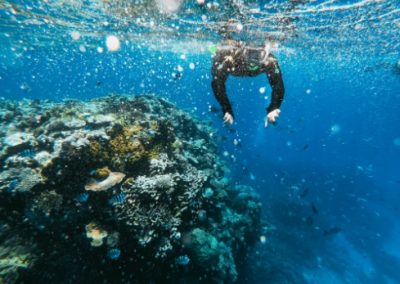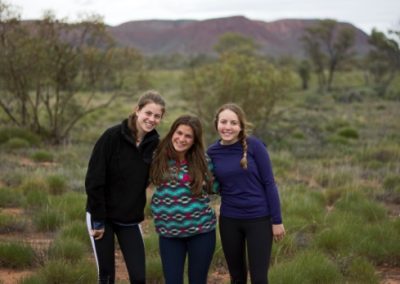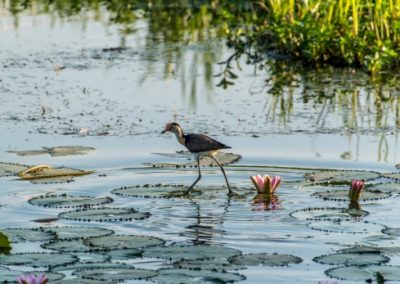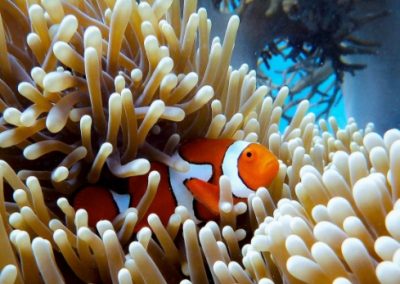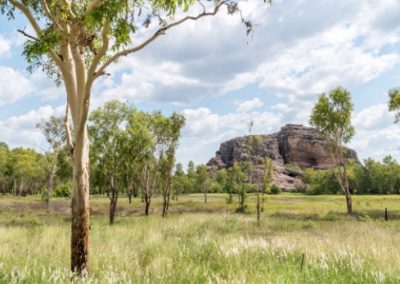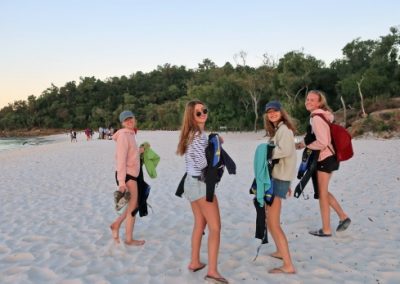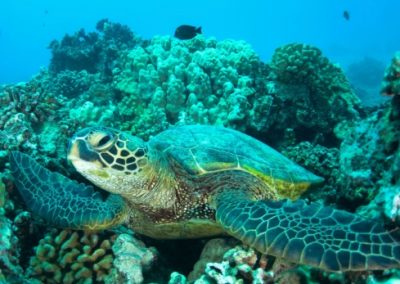Smithsonian Student Travel | Australia | NEW
Highlights
-
Explore UNESCO World Heritage Site, Kakadu National Park
-
Learn creation stories from different Indigenous populations
-
Swim with tropical fish and colorful coral on the Great Barrier Reef
-
Camp in Australian swags under the stars in the Outback
Itinerary
This itinerary represents our plan for the program. However, we may implement changes if we identify opportunities to improve the experience, to take advantage of unexpected events, or to accommodate local schedule changes.
Departure • Travel Day • Meet your student travel group and one of your trip leaders in Los Angeles, and fly together to Sydney, Australia.
Sydney • 3 days • Begin your journey in Sydney and gain a sense of place, acclimate yourself to a new country, and get to know your fellow student travelers with an in-depth group orientation. With the historic Sydney Opera House as your backdrop, explore this international metropolis and all it has to offer. Visit the Australian Museum and discover the importance of land rights in Aboriginal culture, peer at millions of different scientific specimens, and discuss how to raise awareness of climate change. Visit the famous Taronga Zoo and get a glimpse of the native flora and fauna you will see on your Australian journey. Start to gain perspective on how island nations view climate change, and meet with local climate activists to see how governmental organizations are responding to this crisis. Take a stroll through the botanical gardens and join an Aborignal heritage tour. With a Cadigal guide, the traditional Indigenous owners of the land around Sydney, learn about the edible bush plants growing in the gardens. Take surfing lessons in one of Sydney’s many beach towns, participate in a cooking class on traditional Australian recipes, and view the beautiful art and culture around every turn.
Australian Outback • 3 days • Adventure across the Outback toward Uluru, the largest monolith on earth. Steeped in mythology, this colossal piece of sandstone rises abruptly from the desert plain. Trek between the giant rounded domes of adjacent Kata Tjuta on the lookout for bright green ring-necked parrots, plunge into the cool waters of desert swimming holes, examine ancient rock art and identify medicinal plants, then camp out in “the bush” and sleep under the stars. Listen to Aboriginal dreamtime stories, catch a sunrise over this otherworldly landscape, and learn about the cultures that have lived here for over 40,000 years.
Port Douglas, Cape Tribulation, & Cairns • 6 days • Arrive in Cairns and travel to Port Douglas where you will meet your Smithsonian Student Travel Expert. Dive into the topics of coral reef and rainforest conservation while exploring Far North Queensland. Explore and research multiple reefs and terrestrial rainforests. Compare and contrast healthy and imperiled coral and discuss the future health of barrier reefs all over the world. Meet with local biologists and reef scientists to learn firsthand about their work to protect and rehabilitate these special marine habitats; then head out on an exciting excursion to snorkel on the Great Barrier Reef. Just north of Port Douglas lies the 125 million-year-old Daintree National Rainforest. Home to many rare and endangered species like the cassowary, this ancient tropical rainforest hosts many plants and animals found nowhere else in the world. Become guardians of the rainforest as you learn about the different threats to its future, including humans, climate change, and land degradation. Finally, transfer back to the hip seaside town of Cairns for an afternoon of exploration before flying to Darwin the next morning.
Darwin • 4 days • Spend your final days in Australia soaking up the culture and beauty of the Northern Territory. The bewitching landscapes and deeply ingrained Indigenous traditions of the Darwin area captivate you from the moment you arrive. Spend a day exploring Kakadu National Park, a UNESCO World Heritage Site, and immerse yourself in the Indigenous history and famous rock art. Kakadu boasts two billion years of geological history and more than 50,000 years of Indigenous culture. Listen to Bininj and Mungguy creation stories depicting how the Indigenous land owners arrived in the area. Try your hand at playing the didgeridoo, ask questions about the impressive Aboriginal art, or take a hike through the bush to learn about edible plants and food. Enjoy your final day together in Darwin, present final projects to the rest of the group, and celebrate your adventure with new friends before flying home.
Return • Travel Day • Fly from Darwin, Australia, to Los Angeles with your group and a trip leader, then continue on to your final destination.
Smithsonian Student Travel Expert
The expert(s) highlighted below are examples of professionals that will join the group at various points throughout the itinerary to add their expertise and insight to the program theme.

Martin van Aswegen, Marine Scientist, Photographer
Martin is a Ph.D. Candidate currently studying humpback whales in Hawai’i and Alaska. While growing up near marine hotspots in South Africa, New Zealand, and Australia, he developed a strong interest in marine science and scientific communication, with the aim of conserving threatened fauna. In 2015, he merged his two main passions—ecological research and wildlife photography—to study the migration energetics of large whales. He uses drones to measure their size and explores underwater behavior by attaching suction-cup tags to humpback whales. Martin is a National Geographic Explorer. When he is not studying whales, Martin likes to drink good espresso, go freediving, and explore the outdoors.
Martin will be joining both departures of the Australia program.
What to Expect
Accommodations • Our accommodations range from modern hostels in the city, to local guest houses in smaller towns, to campsites in the Australian Outback. Leaders stay together with students throughout the program.
Climate • Daytime temperatures in Sydney range from 50–65°F, while evening temperatures in the Outback can dip as low as 30°F. The humid Far North Queensland ranges from 60-75°F, and the Darwin area can range from 75-90°F throughout the day.
Meals • Throughout the program, we have healthy breakfasts at our residence and take picnics or eat out at cafes and restaurants during the days. Dinners are usually at restaurants or at our accommodations. While camping in the Outback, we form cooking crews and prepare meals together.
Cuisine • The strong British influence in Australia can be seen in its cuisine: meat pies, fish and chips, stews, and hearty breakfasts. Recent immigration has brought along with it cuisine from the Mediterranean and Asia.
Enroll in two programs & save $500!
$300 tuition discount + no second application fee

